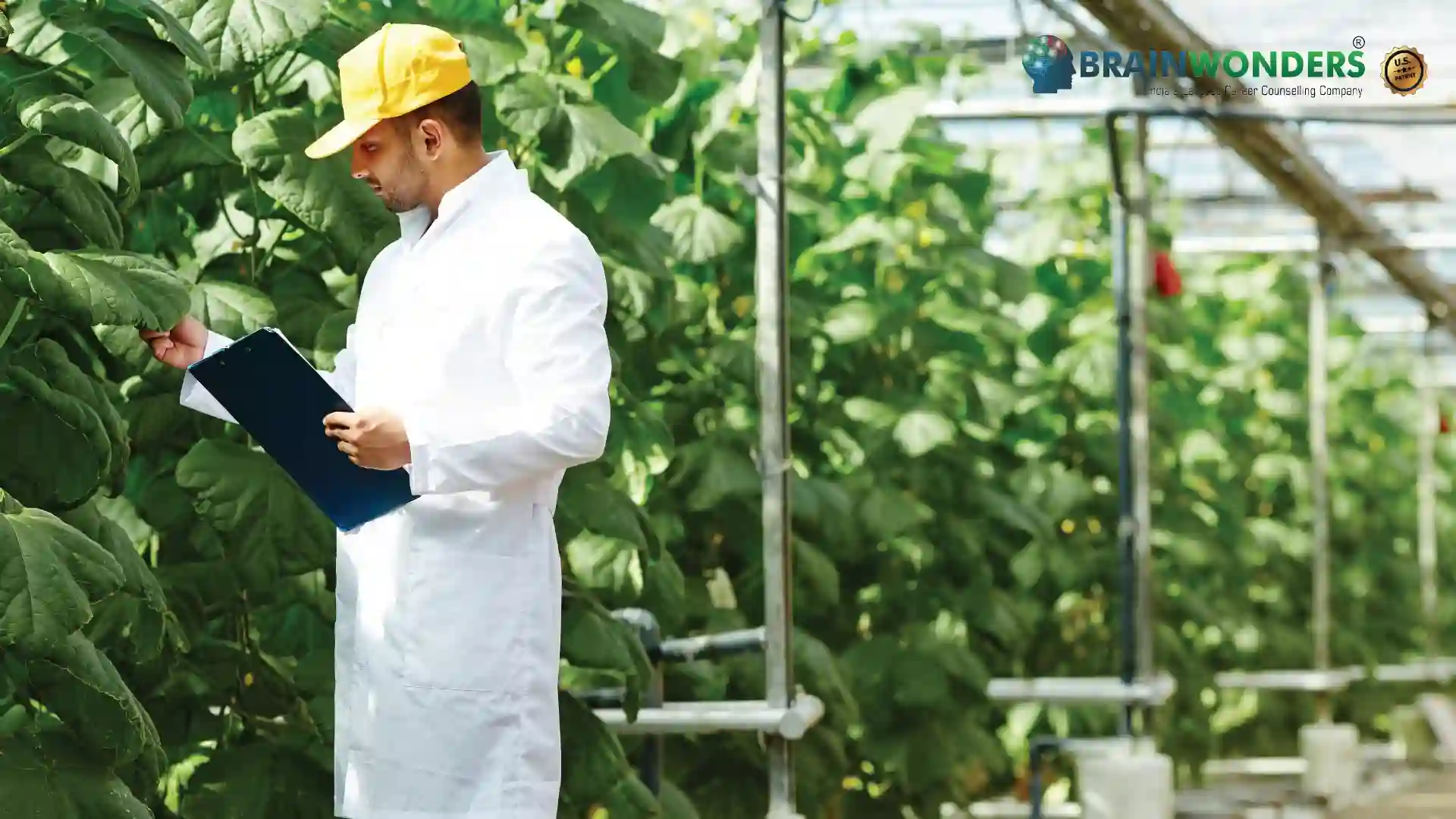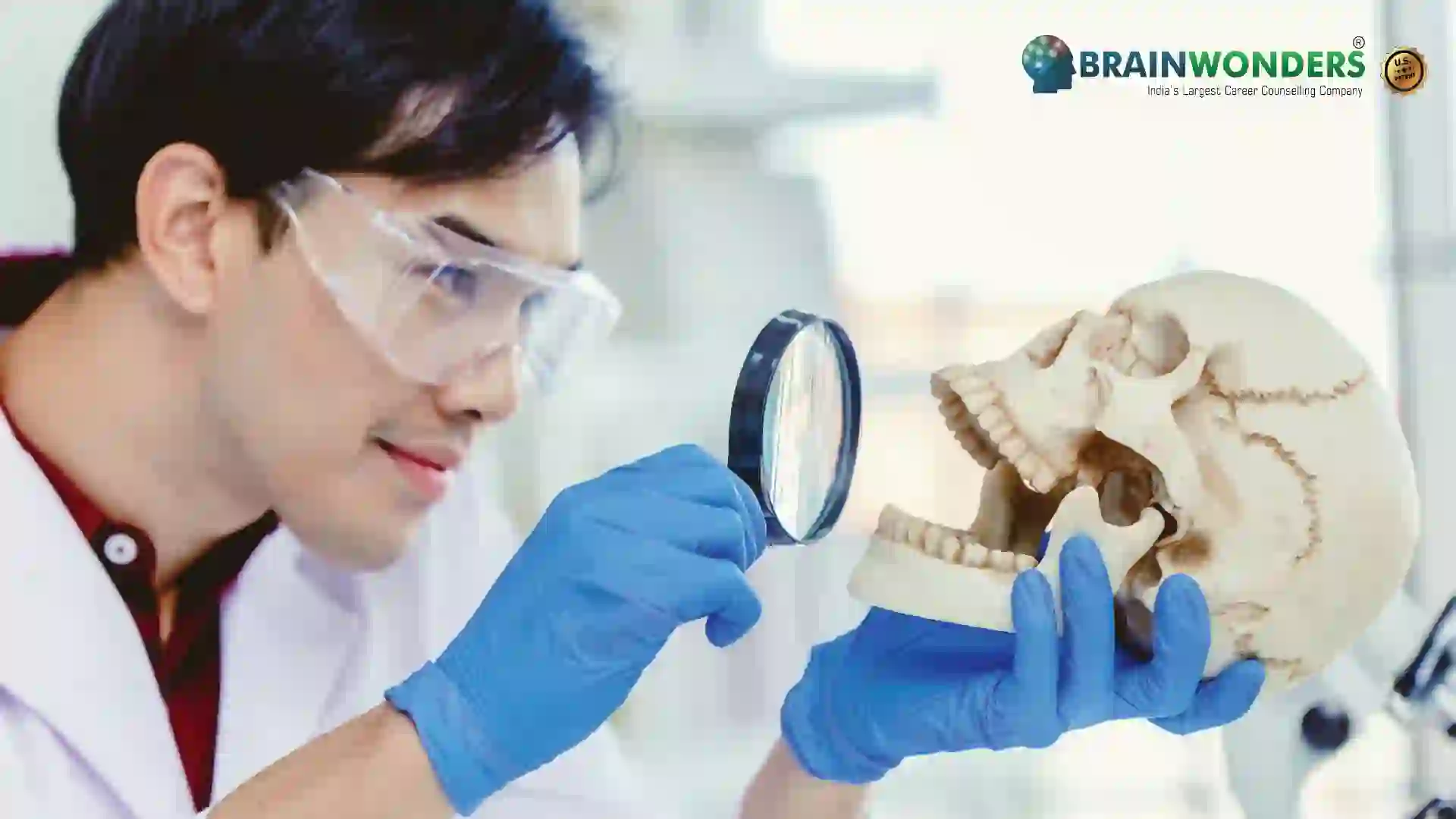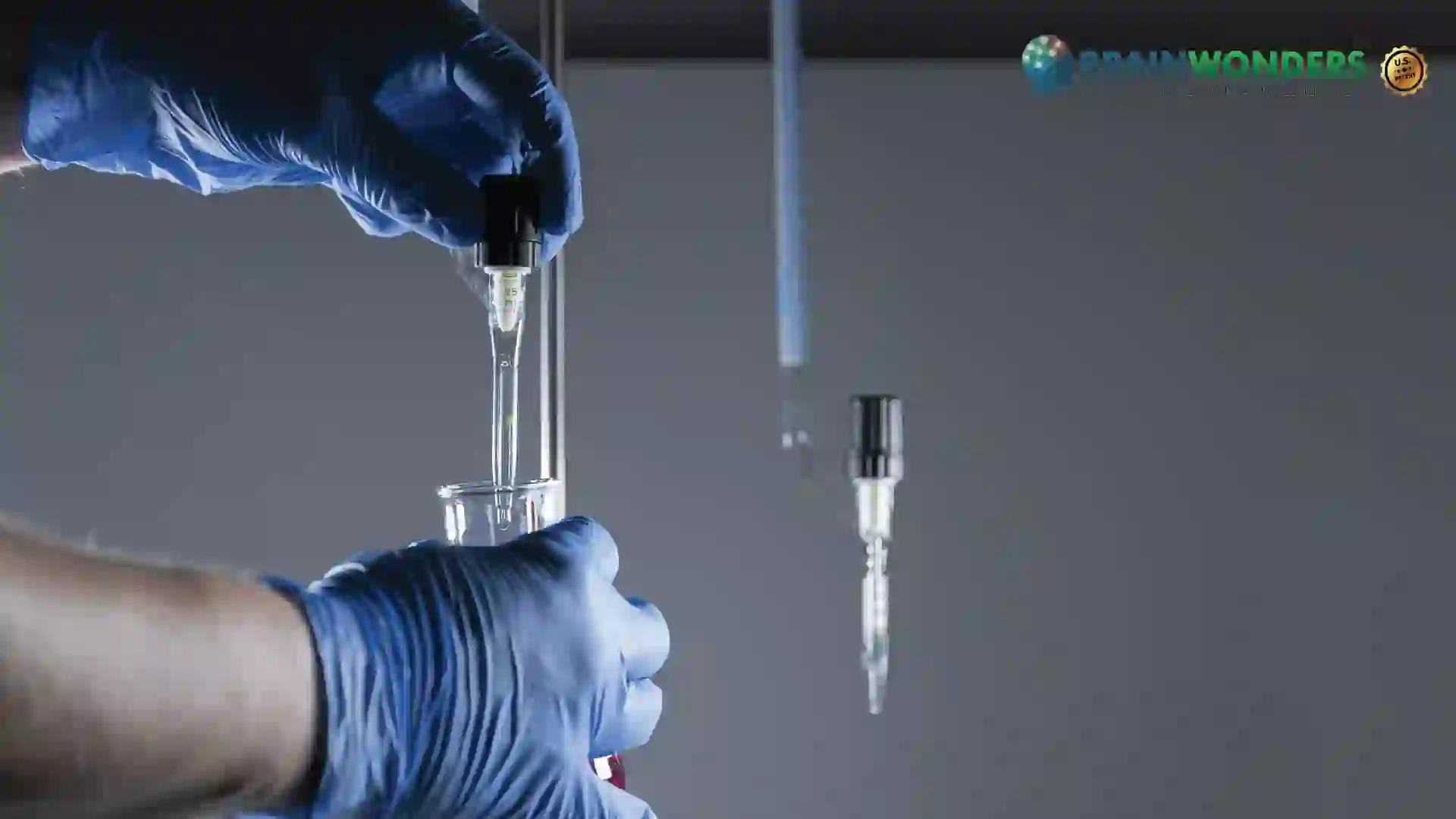How to become an Agricultural Biotechnologist
Overview, Courses, Exam, Colleges, Pathways, Salary

Overview
Who is Agricultural Biotechnologist ?
Agricultural biotechnology, also known as Green Biotechnology, is a branch of agricultural science that involves the use of Biotechnology based scientific instruments and techniques to modify living organisms such as animals, plants, and microorganisms to protect crops, and enhance crop yield and nutrition.
Biotechnology is being utilized extensively in the agricultural field to increase the yield of crops, protect crops from pests, and enhance the quality (nutrition quotient) of the crop to serve the ever-growing population of the world and to meet the needs of all types of communities.
Biotechnologists are creating products to safeguard crops/plants from disease to achieve these goals, they are assisting farmers to recognize the best seeds for usage in selective breeding programs. By identifying and modifying specific genes, biotechnology improves breeders’ ability to improve crops. Biotechnological advancements have helped improve crop quality and yield which was difficult while sticking to traditional agricultural methods.
Agricultural biotechnologists are working towards generating fodder for livestock that contains the wholesome nutritional quality that would help maintain their ideal health, increase/manipulate the yield of the commercial outputs that are obtained from them, and also increase their reproductive value by maintaining their fertility status. This way agricultural biotechnologists work towards helping the animal husbandry industry with the use of agricultural products and techniques.
To meet the needs of a dynamically growing population, agricultural biotechnology has been used to improve the quality and quantity of a variety of crops. Crops with a higher vitamin concentration can be produced using genetic engineering. Golden rice, for example, has two genes that enable plants to produce compounds that are converted to vitamin A in the human body. The rice plant possesses the complete mechanism required for synthesizing beta-Carotene, however, it is active only in leaves but turned off in the grain. Genetic engineering enables this agent to become active even in the grain by the addition of 2 genes and beta-carotene gets accumulated even in the grains.
Similarly, Uganda`s Banana 21 project has worked to improve banana nutrition in order to combat micronutrient deficiencies. Banana 21 has helped foster a solution to micronutrient deficiencies through the vessel of staple food and major starch source in Africa by genetically modifying bananas to contain vitamin A and iron. Crops can also be genetically modified to reduce toxicity or to produce allergen-free varieties.
Typical day at work
What does Agricultural Biotechnologist do?
- Creation and execution of research studies.
- Develop new research techniques and methodologies.
- Collaborating with laboratory experts on research.
- Setting up the lab equipment for the conducting and monitoring of experiments.
- Collection of samples of crops/plants, seeds, mud samples, microbial samples from crop infections, etc are done on a regular basis for analysis and evaluation to understand the percentage of viability.
- Recording and analysis of results.
- Recognizing how research can be used to enhance human life through agricultural advancements.
- Finding ways of producing new foods and fuels using organisms and biological processes
- Creating diagnostic tools to detect diseases quickly
- Using bacteria, fungi, and other types of micro-organisms for a variety of industrial applications comprising crop yield quantity, quality, and crop health management.
- Crossbreeding different types of crops/plants, in order to enhance valuable features like disease resistance, better-quality crop nutrition, increased grain yield, and quicker environmental adaptation after crossbreeding.
- Carrying out research and tests in the arenas of genetic alteration and bio-molecular engineering, which involves modifying the innate genetic make-up of crops/plants used in agriculture.
- To develop, conduct, and monitor experiments utilizing live organisms or bio-molecular processes in a laboratory setting, in order to resolve agricultural problems, enhance processes, and create new crop/plant products.
- To carry out Bio-remediation and/or bio-augmentation of agricultural fields that require the procedures to make the fields more viable and profitable for conducting the growth of crops/plants.
- To use scientific expertise to apply various methodologies to obtain results.
- To carry out data review, of the experiments and interpret the results to promote scientific work.
- To accurately record and publish results in reports and via presentations
- To establish, maintain, and operate standard laboratory appliances and computers
- To work independently or with other scientists and in collaboration
- Follow regulations on health, security, and the environment and meet quality standards
- To monitor recent biotechnology and agricultural developments to create new methods, products, or practices
Abilities and Aptitude needed
What are the skills, abilities & aptitude needed to become Agricultural Biotechnologist?
An Agricultural Biotechnologist must have complete knowledge of traditional agricultural techniques and tools. They must possess information about the vitals of the agricultural field where they would probably grow their crops on. Vital information such as the salinity of the soil, mineral composition, soil composition, etc. This would help them achieve an understanding of the medium in which the crops would grow and if it requires any extra supplementation to support their adequate growth.
In order, to understand this vital of any soil the agricultural biotechnologist must be well versed in physical and chemical techniques of soil composition detection. After soil composition detection, the other major factors that determine the adequate growth of specific crops and species of plants are sunlight, temperature, and water. Hence a good Agricultural Biotechnologist must be able to deduce whether a particular condition of living is most adequate for the growth of a particular species of crops that they are working with. In order for this to work it is also very essential that the Agricultural Biotechnologist must have complete knowledge about the right conditions of growth for as many plant and crop species as possible.
An agricultural Biotehcnologist must have a strong ability to amalgamate information and techniques that were both traditionally followed and modernly invented. Such amalgamations help to avoid faults caused due to variations caused by the growing innovations in techniques. These variations can be precisely taken into consideration if traditional and modern techniques are used for agriculture since they cater to a larger bracket instead of the limitations caused by using these techniques singularly.
An agricultural biotechnologist must have good analytical knowledge backed up by a critical and radical mind that has the ability to take up all types of knowledge, analyze it, critically screen it, and radically break down this knowledge into categories of them being useful or rather useless in nature.He/she must have a strong understanding of chemistry since several Biotechnological processes and techniques make use of chemicals for their operations and functioning. They must possess the ability to understand the correct use of specific chemicals and their disposal post-usage. They must have a practical understanding of how to use and handle a particular chemical such that it can be utilized for its utmost quality while not creating harm to the user and his surroundings.
They should also have a strong understanding of internal plant/crop biochemistry in order to provide ideal biochemical agents, reagents, supplements, and supporting growth hormones for the correct growth of the plant/crop they are working on. In cases where the plant/crop is genetically modified by the use of genes obtained from animals or micro-organisms, it is very important for the agricultural biotechnologist to have experienced knowledge about genetics, microbial/animal biochemistry, physiology, cellular biology, and microbiology.
Since Agricultural Biotechnologists work to genetically modify plants/crops to enhance their yield, immunity towards diseases, and nutritional quality it is very important that these professionals have adequate knowledge about genetic engineering techniques (like Recombinant DNA technology). This would help them in the addition and deletion of specific genes if needed for the completion of the above-mentioned goals for the enhancement of these plants/crops.
Working with ideas and doing a lot of thinking, often abstract or conceptual thinking, is a requirement for investigative occupations. These include learning about facts and figures, as well as data analysis, situation assessment, decision-making, and problem-solving.
- Abstract reasoning Abilities: The ability to comprehend ideas that are not expressed in words or numbers; it is the ability to understand concepts that are not clearly expressed verbally or otherwise. Abilities Abstract reasoning is the ability to comprehend ideas that are not expressed in words or numbers; it is the ability to comprehend concepts that are not clearly expressed verbally or otherwise.
- Realistic Occupations: These are more hands-on and practical than paperwork or office work. Realistic occupations frequently involve physical activities in order to complete tasks that require the use of various tools and equipment.
- Deductive Reasoning: The ability to apply general rules and common logic to specific problems in order to produce logical and understandable answers. Understanding the reasons for an event or a situation, for example, using general rules and common logic.
- Closure Flexibility: The ability to identify or detect a pattern (a figure, object, word, or sound) hidden among distracting materials. This includes the ability to thoroughly research the plant/crop and the type of agricultural/ biotechnological procedure that they employ towards enhancing the abilities of that plant/crop. while researching it is this closure flexibility that allows the person to identify patterns in the totality of their research.
- Inductive Reasoning: The ability to combine information from multiple sources, concepts, and theories to form general rules or conclusions. For example, analyzing a series of events or situations to arrive at a set of rules or conclusions.
- Inter-Personal: The ability to form and maintain positive relationships with coworkers and others.
- Naturalistic Intelligence: The ability to recognize various flora and fauna from around the world; sensitivity to nature and natural surroundings; sensitivity to the needs of various flora and fauna.
- Numerical reasoning: The ability to correctly add, subtract, multiply, divide, and perform other basic numerical calculations.
- Originality: The ability to generate unusual or novel ideas about a given topic or situation, or to devise creative solutions to problems. Spatial Ability: The ability to visualise three-dimensional objects by looking at them on paper or mentally visualizing them in three dimensions.
- Written Comprehension: The ability to read and comprehend written information and ideas.
- Skills Active Learning: Concentrated and continuous learning from various sources of information, observation, and other means for application in completing tasks. Basically being open to all kinds of learnings of skills, techniques, processes, research avenues, etc.
- Coordination: The ability to work with others to complete tasks and coordinate with them as per their time schedule and understanding of the subject.
- Critical Thinking: The ability to analyze complex situations using logic and reasoning in order to understand the situation and take appropriate actions or make interpretations and inferences.
- Judgment and Decision Making: The ability to weigh the pros and cons of various decision alternatives to weigh costs and benefits and to make appropriate and suitable decisions.
- Operations and Process Analysis: The ability to analyze operations and processes such as industrial manufacturing, chemical processing, and so on in order to design better and more efficient operational processes and systems.
- Problem-Solving: The ability to analyze and comprehend problems, evaluate various solutions to problems, and use the best solution to problems.
- Controlling Processes and Operations: The ability to control the processes and operations of various machines, equipment, devices, and systems using various types of electrical and electronic control instruments and systems.
- Quality Control Analysis: The ability to conduct tests and inspections on products, services, or processes in order to assess their quality or performance.
- Reading Comprehension: The ability to comprehend written sentences and paragraphs in work-related documents.
- Scientific Ability: The ability to use various scientific rules and methods to complete tasks or solve problems. It is also the ability to understand scientific processes and their application in different problems faced during the research.
- Technical Design and Drawing: The ability to create and develop designs and drawings for a variety of structures, machines, equipment, and devices. Technical abilities include the ability to use various technologies and technical methods to complete tasks or solve problems.
Pathways
How to become an Agricultural Biotechnologist?
Entrance Exam
Entrance Exam for Agricultural Biotechnologist ?
Courses
Which course I can pursue?
Best Colleges
Which are the best colleges to attend to become an Agricultural Biotechnologist?
Industries
Which Industries are open for Agricultural Biotechnologist?
- Pesticides and fertilizers industry.
- Enhanced seed production industry.
- Soil composition detection industry.
- Private agricultural/farming companies working towards supplying seeds, organic fertilizers, soil-enhancing components, soil hormones, metabolites, etc.
- Working at Government Organisations that provide help to farmers having agricultural problems.
- Agencies that take up barren lands for bio-augmentation and bio-remediation to treat them and make them viable for agricultural purposes.
- Pharmaceutical industry
- Nutraceutical industry
- Chemical Industry
- Biofuel industry
- Flower cultivation
- Food and Beverage industry
- Transgenic Crop Industry
internship
Are there internships available for Agricultural Biotechnologist?
List of institutes in India that provide internships and training:
- http://www.abfindia.org/
- http://www.nthrys.com/
- https://www.jai-kisan.com/
- https://www.corporate.agrostar.in/contact
- https://iari.res.in/index.php/en/
Career outlook
What does the future look like for Agricultural Biotechnologist?
Possible future roles and careers for an agricultural biotechnologist: -
- Official government-appointed agriculture scientist who takes up small rural agriculture enhancement projects. One of the major works of these government-appointed Agri biotechnologists is to help farmers from very underdeveloped villages to enhance their farming products by either providing them with high-potency plant/crop seeds and/or training them with newer better agriculture biotech techniques and methods. Another major duty of these representatives is to identify agricultural problems of farmlands and to work towards solving those problems with traditional/modern agricultural biotechnology techniques.
- Agricultural Biotechnologists can join several private sectors that are working towards the production of high-potency seeds that would give higher yields after sowing with great defense systems against pests and viruses which would help farmers to generate large agricultural progress. This way more consumers would be attracted to buying seeds of such potency from specific private organizations. A large amount of private research is being done to generate seeds of such high potency and for which large amounts of agricultural biotechnologists are being recruited regularly by private sectors.
- Several research institutions are regularly working towards understanding the working of plant diseases and the severity of these diseases. They are also conducting consistent research to understand plant and pest relationships. Large amounts of work are being conducted towards making plants/crops that are resistant to even fluctuating environmental factors. These researches allow them to work towards gaining solutions to problems caused by pests and environmental conditions. Hence large scope lies in being a part of such research agencies.
- Industries that are working towards transgenic plant/crop research and development also require individuals with an innate knowledge of agriculture and biotechnology-based techniques. These individuals would be helpful in the production and agricultural cultivation of transgenic plants/crops that would be then tested for various analyses to understand the true potential of the transgene inserted in them that conducted their genetic manipulation.
- Even pharmaceutical, food manufacturing, beverage manufacturing, and nutraceutical companies require Agricultural Biotechnologists since their knowledge of plants/crops and the several byproducts provided by them can be used to generate several compositions having a high industrial value which are being used during the production of vaccines, antibiotics, medicines, natural supplements, dietary enhancers, processed foods, beverages, etc.
- An Agricultural Biotechnologist can also be a part of a biofuel production plant since plant/crop knowledge and the ability to enhance their output via biotechnological tools are some of the desired qualities in a biofuel reactor center.







